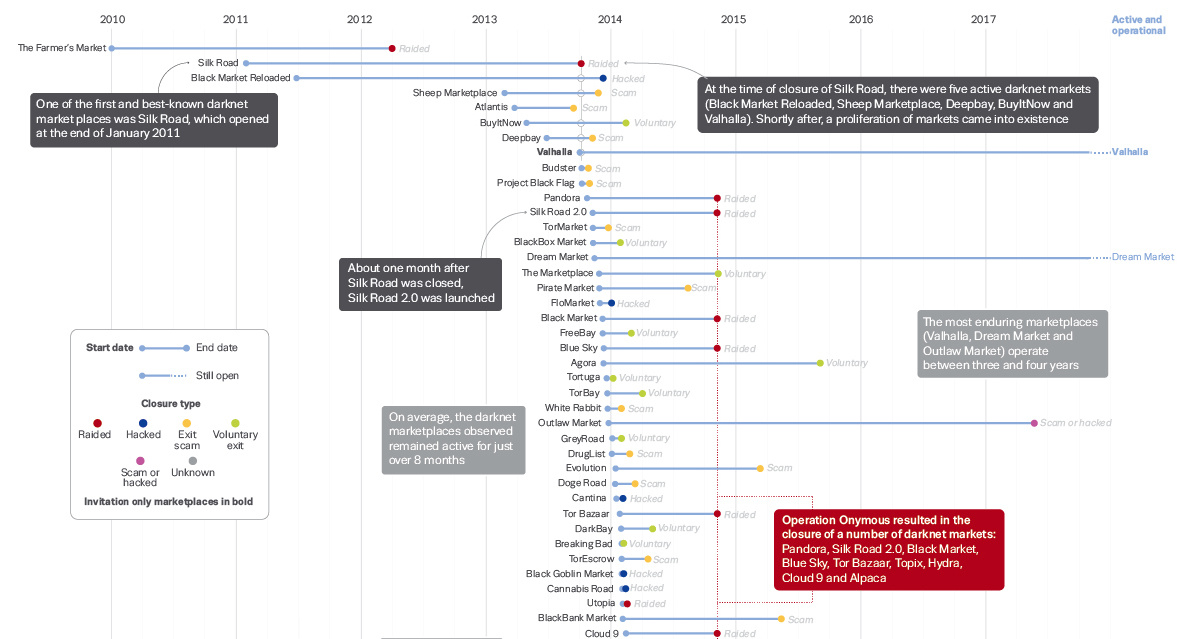Concealed Transactions: The Intrigue of Dark Web Finance

In the shadows of the internet lies a vast and mysterious realm known as the dark web, a area often shrouded in obscurity and misunderstandings. This hidden underbelly of the global network is home to a multitude of online markets where goods and services, both legal and illicit, are traded in a manner that challenges traditional economics. The allure of deep web markets is not just in the anonymity they provide, but also in the distinct economic systems that have developed within them. Here, digital currencies reign supreme, and transactions take place with a degree of secrecy that traditional marketplaces cannot imitate.
As society grapples with the consequences of this clandestine economy, understanding the intricacies of deep web transactions becomes essential. The shadow internet serves as a fascinating case study in how confidence, credibility, and creativity can flourish in a space often associated with illicit activities. Through the lens of deep web economics, we can explore the drivers behind these veiled transactions, shedding light on the intricate interplay between supply and demand in an unregulated marketplace that operates well from the scrutinizing eye of state regulation.
Grasping the Darknet
The Dark Web is a section of the web that is unindexed by standard search engines and needs specialized programs to utilize. It exists within a more extensive framework known as the underbelly of the web, which contains all content that is unreachable through typical browsing techniques. The Darknet is often associated with concealment, allowing users to participate in activities that may be illicit or controversial without easily being traced. This trait has contributed to its aura and the intrigue it has for both the general public and authorities.

Participants access the Dark Web primarily through dedicated software such as the Tor network, which conceals their online activity. This method routes web traffic through a chain of volunteer-operated machines, making it hard to trace users' geographical positions. While this concealment enables various lawful activities, such as protecting the privacy of informants and journalists in authoritarian systems, it has also spawned to darker elements, including black markets, malicious hacking, and the circulation of forbidden products.
Darknet markets are a key feature within this secret side of the internet, offering goods and services that span regular items to controlled substances and weapons. Exchanges on these platforms are typically carried out using virtual currencies to further guarantee privacy for both purchasers and sellers. The decentralized nature of these markets, along with the complexity of their functioning, creates an atmosphere where conventional economic theories can be seen in unconventional ways. This particular marketplace challenges standard notions of commerce and raises questions about regulation, legality, and moral implications in our increasingly digital world.
Financial Trends of Darknet Economies
The economical aspects of shadow markets is complex, characterized by anonymity and a unique market supply and demand relationship. Sellers often operate under aliases, allowing them to engage in transactions without revealing their true identities. This anonymity can attract a variety of items, from legitimate items to illicit items including narcotics and cyber services. The demand for these items creates a platform where costs can vary dramatically, influenced by factors such as the risk associated with the products and the availability presented by sellers.
Trust and credibility play important roles within these economies. Vendors establish trustworthiness through feedback systems that allow buyers to review their experiences, cultivating trust in an environment where transactions are naturally risky. New vendors often face challenges to gain ground as buyers tend to choose known sellers with strong ratings. This creates a contested environment where successful marketing and support become essential factors for survival and growth in the market, thus impacting overall economic dynamics.
Additionally, shadow markets are often short-lived, with law enforcement continuously working to dismantle operations. This impermanence adds a layer of urgency for both buyers and vendors, influencing purchasing behavior and market stability. As markets emerge and vanish, they often inspire the development of innovative platforms, pushing the boundaries on technology and security measures. darknet marketplace changing environment reflects a unique financial model that thrives on both innovation and danger, showcasing the contrasting nature of opportunity and risk that characterizes darknet transactions.
Dangers and Moral Considerations
Involvement with darkweb markets carries substantial risks, including legal and personal. Many of these platforms operate beyond the control of law enforcement, but this does not mean to protection for consumers. Law enforcement agencies have become more sophisticated in tracking illegal activities online, leading to arrests and prosecutions of individuals participating in dark web transactions. Additionally, participants face the risk of scams; not all vendors can be trusted, and many listings may result in counterfeit products or nonexistent deliveries, which can cause financial losses and user frustration.
Beyond legal repercussions, ethical considerations loom large in the realm of darkweb economics. The anonymity offered by these markets often enables a host of unlawful activities, including narcotic trade, weapon sales, and human trade. The question of whether individuals should engage in these markets is complicated, as transactions frequently contribute to damage in various forms. This creates a moral dilemma for those who might rationalize their participation by suggesting they are engaging in a free market or seeking individual profit.
Furthermore, the impact of dark web markets reaches further than immediate users. They can sustain cycles of dependency, criminal activity, and violence in communities, affecting countless individuals unconnected to the transactions themselves. The ethical implications extend to everyone involved, whether of direct or indirect involved, prompting a larger conversation about accountability and the societal consequences of participating in an subterranean economy.
